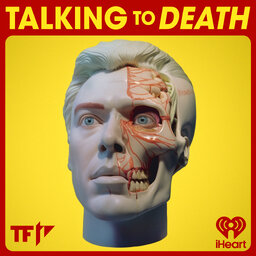George Chidi | King Slime, The Trial of Young Thug and YSL
Payne sits down with George Chidi, journalist and host of the gripping podcast "King Slime: The Trial of Young Thug and YSL". George provides an in-depth look into the high-profile trial, unpacking the complex web of allegations surrounding Young Thug and the YSL gang. With his insider knowledge and investigative prowess, Chidi sheds light on the legal battles, the personalities involved, and the broader implications for the music industry and criminal justice system. Don’t miss this compelling discussion on one of the most talked-about trials in recent memory.
Subscribe to Tenderfoot+ for ad-free listening - https://tenderfoot.tv/plus/
Follow Talking to Death on Social:
IG: @talkingtodeath
TikTok: @talkingtodeathpodcast
In 1 playlist(s)
Talking to Death with Payne Lindsey
Up and Vanished host and creator Payne Lindsey wants to talk you to death in his first “true crime” …Social links
Follow podcast
Recent clips

Jason Flom | Wrongful Convictions, Death Row and Rock and Roll (RE-RELEASE)
55:33

Jeremy Corbell | UAP, Disclosure and Filmmaking (RE-RELEASE)
1:02:11

Maggie Freleng | Journalism, Serial Killers and Podcasting (RE-RELEASE)
1:22:22
 Talking to Death with Payne Lindsey
Talking to Death with Payne Lindsey